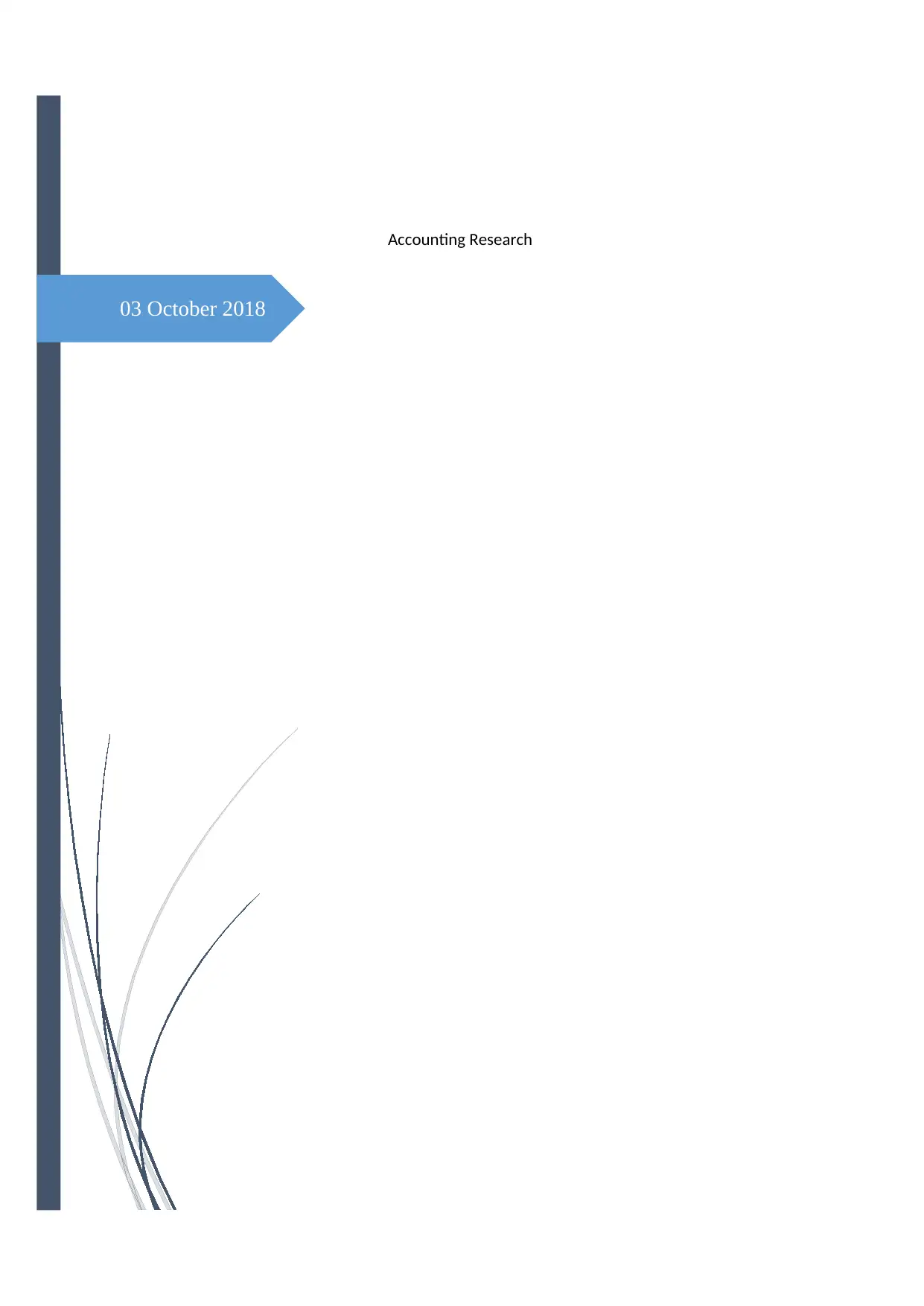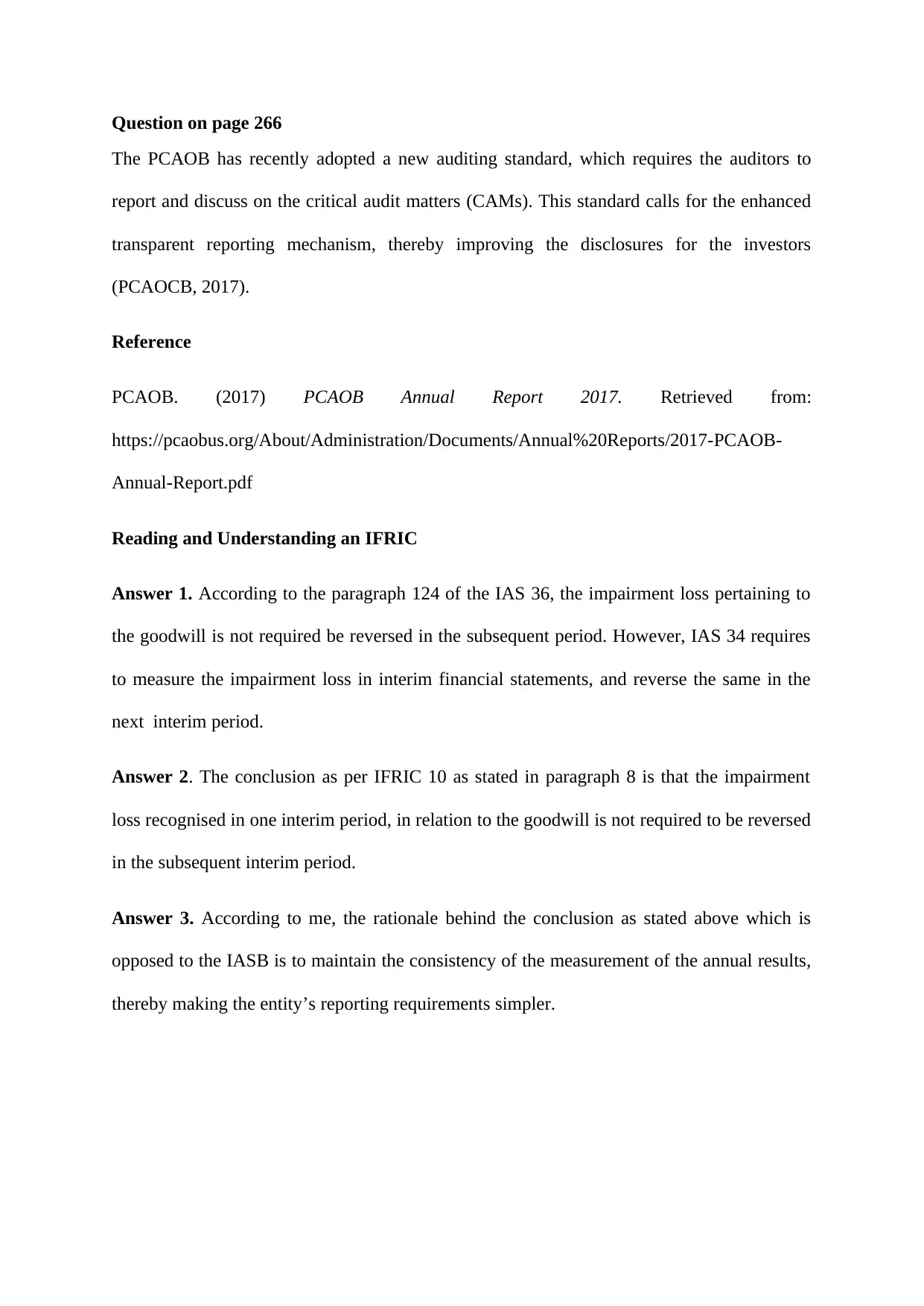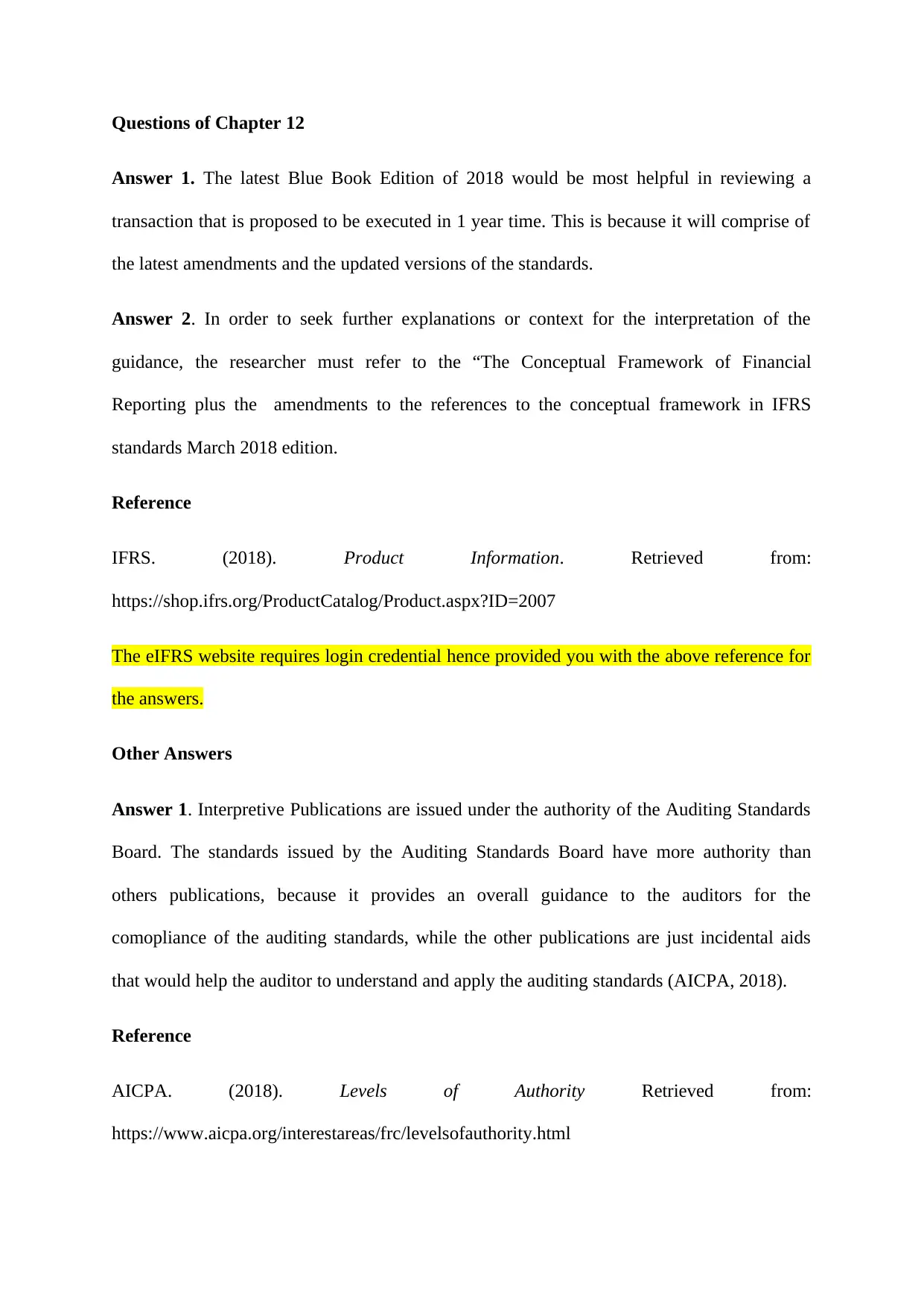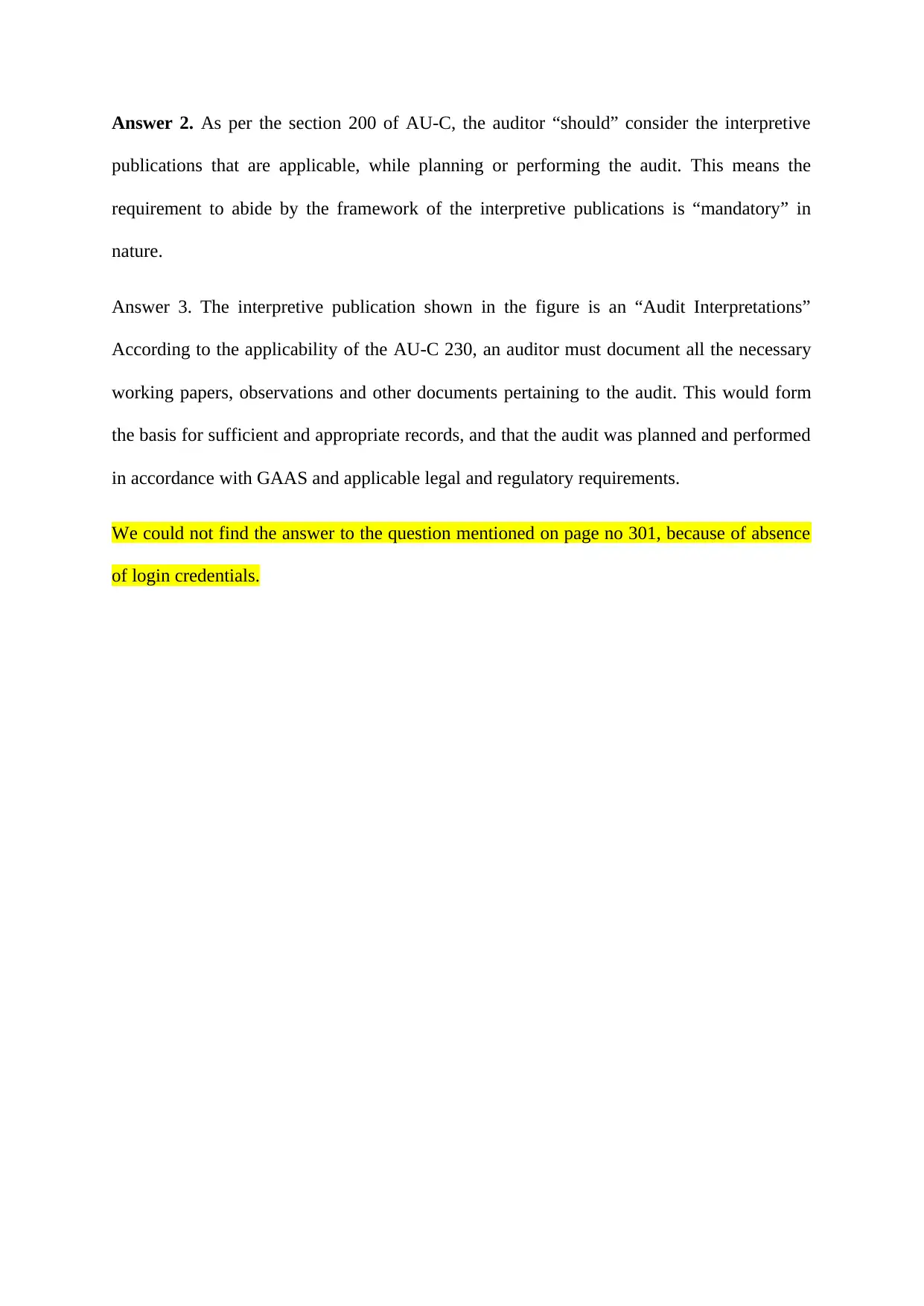Accounting Homework Solution: PCAOB, IFRS, and Auditing Standards
VerifiedAdded on 2023/06/04
|4
|597
|268
Homework Assignment
AI Summary
This accounting homework assignment provides solutions to questions related to auditing standards, including PCAOB and IFRS. The assignment addresses critical audit matters, impairment losses, and interpretive publications. It includes analysis of the 2018 Blue Book Edition and the Conceptual Framework of Financial Reporting. Additionally, it explores the authority of the Auditing Standards Board and the requirements for audit documentation as per AU-C 230. The solutions offer insights into the application of GAAS and the importance of maintaining appropriate audit records. This document, available on Desklib, helps students understand complex accounting concepts and improve their problem-solving skills.
1 out of 4





![[object Object]](/_next/static/media/star-bottom.7253800d.svg)